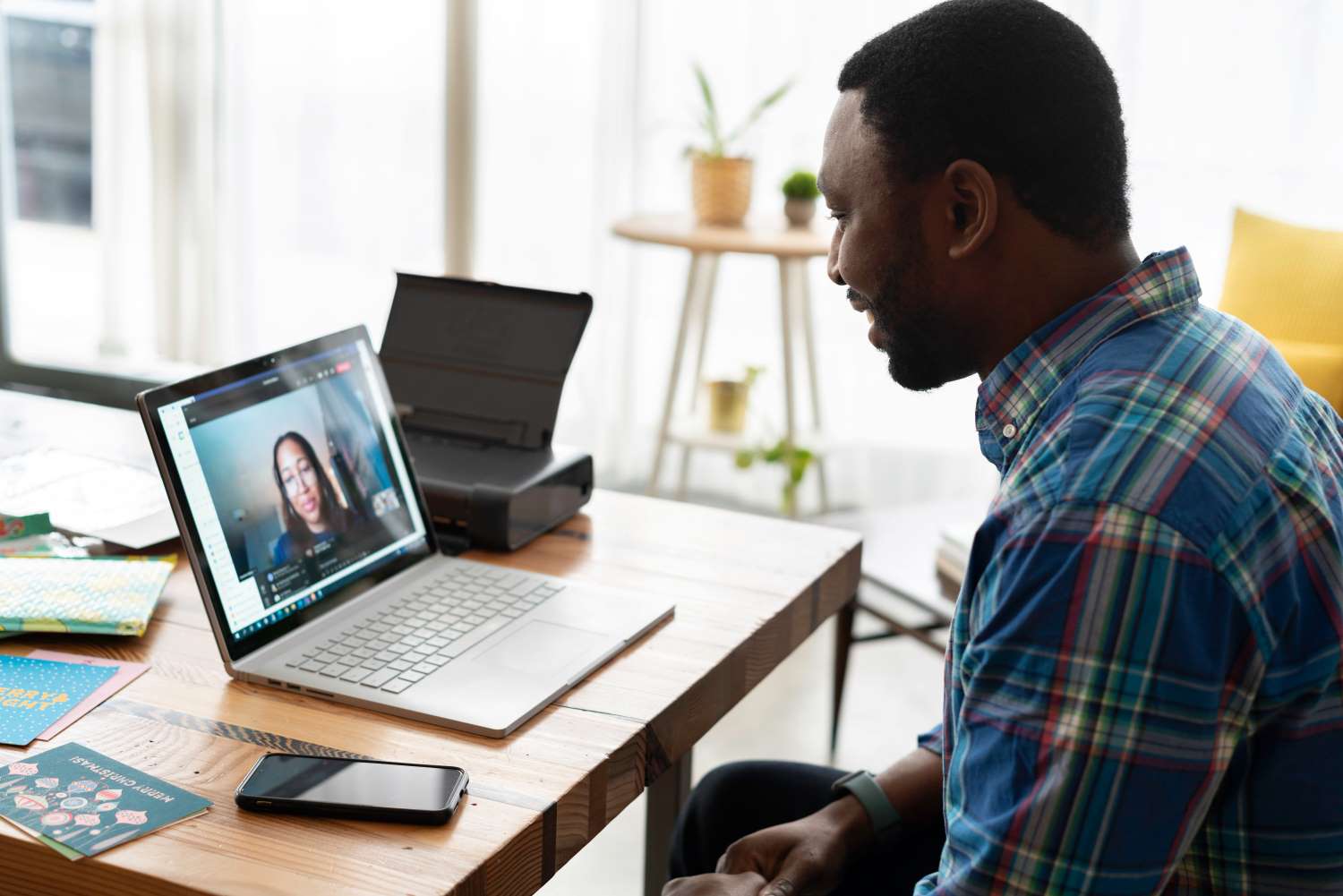Since 2020, Covid-19 has infiltrated every aspect of our lives, changing the way we live, work and socialise. But while it wreaked havoc for the events industry, it hasn’t all been doom and gloom.
Now that social distancing rules have been lifted, we thought we’d take the chance to look at some of the positive changes that the pandemic has brought. Here are five things that we believe have changed our industry for the better and are here to stay.
1. Virtual events
When Covid-19 arrived and events in the UK were no longer legal, virtual events provided a vital lifeline for our industry. But even though they arose out of necessity, it’s become clear that the benefits of virtual events are far-reaching.
Virtual events are better for the environment, more inclusive, more time-efficient and they allow people to attend from all over over the world. Not only that, but they've proven to be extremely successful and are cheaper to run! With all this in mind, virtual events aren't just here to stay – they've also made proving the necessity for returning to in-person events a challenge internally!
We conducted a survey that showed around 69% of event professionals are still organising virtual events for 2021. Furthermore, a discussion with 35 senior event planners showed that virtual events will continue to play a significant role in the majority of events programs in 2022. This is in contrast to just 45% of event professionals who are currently organising in-person events due to take place this year.
With international travel likely to remain uncertain for a while yet with conflicting traffic light systems from country-to-country, virtual events are likely to be used in place of in-person global events for quite some time. And with many businesses continuing to operate remotely indefinitely, virtual events will remain a necessity for everyday work matters such as online meetings, webinars, training, onboarding and company updates for the foreseeable future.
In fact, even though delegates are largely keen to return to socialising, there still seems to be a preference for webinars and virtual events in place of in-person seminars or conferences.
Virtual events have now proven their worth to businesses and attendees around the world. So, it's unlikely that many will be willing to let them go anytime soon.

2. Hybrid events
The pandemic has helped to highlight the fact that everyone is different. While some people love working from home, others are relieved to be able to return to the office. While some have loved finding a better work-life balance, others have missed being able to get out and about with friends and colleagues.
Hybrid events allow companies and individuals to cater to all those preferences.
At the moment, they're far less common than virtual events, with only 30% of event planners in our survey currently organising a hybrid event for 2021. This is largely because they effectively cost twice as much to run, with the majority of event professionals allocating two budgets to events of this kind – one for virtual and one for in-person. This means many businesses are struggling to justify them based on ROI.
That said, we are seeing low-cost, small-scale hybrid events, such as hybrid meetings, being used increasingly in everyday business settings as employees start to return to work. For example, hybrid meetings that are held both in-person and over a cost-effective video conferencing tool, such as Zoom, are allowing employees to return to the office at their own pace. With more and more businesses adjusting to offer remote working long-term, we believe that hybrid meetings will continue to be a necessity to facilitate flexible working patterns for a long time to come.
When it comes to larger internal and external events, on the other hand, further thought will need to be given to demonstrating sustainable ROI if hybrid events are going to cement themselves as an event staple. In order to offset the cost of hybrid events, we're likely to see event professionals shifting back towards a paid model, away from the free registration events that dominated the market in 2020 and the beginning of 2021.
3. Hygiene
We’ve always been attracted to venues that are clean. But Covid-19 has really shone a light on hygiene.
During the pandemic, we’ve become used to venues putting in place enhanced cleaning measures and this is an expectation that’s unlikely to change. After all, even when there isn’t a life-threatening virus to worry about, we’ll still want to avoid catching colds and stomach bugs.
Event professionals will need to consider what kinds of safety measures they can put in place to make their events more hygienic (download our Safer Events white paper for ideas). But they’ll also need to consider how they can communicate these safety measures to attendees, in order to reassure delegates that an event is safe to attend. This might be through pre-event comms, through obtaining a dedicated accreditation (such as our Safer Events accreditation) or even through signage at the venue.
While some might think that asking attendees to continue adhering to safety requirements would be off-putting, it's been found that masks at in-person events aren't deterring delegates from attending. On the whole, masks are embraced at networking events where standing is involved, but generally disliked for sit-down activities such as dinners.
Ultimately, hygiene has become an important consideration for attendees who are considering attending a venue or event. Communicating what safety measures will be in place in advance will be vital in helping individuals to decide whether or not they want to attend in person.

4. Self-care
Before Covid, there was a strong attitude amongst event professionals that the most important thing was delivering the best possible event – even if that meant burning out or turning up to work ill.
Now, however, there’s a much greater focus on self-care. Pushing through and turning up to work unwell is no longer applauded – largely because we’re more concerned about hygiene.
Mental health has also taken centre stage. With the majority of us working from home, we’ve been able to spend more time with our families and reflect on our priorities. Many of us have found that working from home provides a better work-life balance. And many who haven’t yet found the balance they’re looking for are considering changing jobs to find it. In fact, a survey by Microsoft across 31 countries has revealed that 40% of people are considering leaving their employer this year.
This means employers are being forced to take greater responsibility for their employees’ mental wellbeing or risk losing them to competitors. More employers than ever are introducing mental health coaching at work, mental health sick days and more flexible working options. Some are even scrapping their offices altogether to facilitate fully remote working.
Of course, remote working won’t suit everybody but as far as we’re concerned, a greater focus on self-care and work-life balance can only be a good thing!
5. A reason why
The pandemic has proven that a lot can be accomplished from home. So, individuals are going to be less likely to want to travel to a physical event venue without a good reason – particularly if it’s far away or expensive to get to.
It's been noted that delegates who are hesitant to attend in-person events often cite risk of exposure, vaccine status, the risk of being asked to isolate and the inconvenience of travel. Although the majority of these reasons are likely to disappear over time as we learn to live with Covid-19, the one factor that won't change is the inconvenience of travel as opposed to staying at home.
All this means that event professionals will need a strong reason to host an in-person event and they’ll need to be able to clearly communicate this reason to potential attendees.
We expect attendees to be most open to attending in-person events that provide something that can’t be easily replicated virtually. For example, it’s very difficult for virtual events to provide the level of connection or serendipitous encounters that in-person events can. By gearing your event’s format around facilitating connection, you’ll be giving your attendees true value beyond just information that they could obtain virtually.
At the end of the day, it’s part of human nature to want to connect face-to-face. However, your attendees’ time is valuable so, when they attend an in-person event, they’ll want to be sure it’s worth their time.

Every cloud has a silver lining. And although the Covid-19 pandemic has been a very big cloud, there have been some real positives that have emerged from it. We’re excited to see how these pandemic trends can change our industry for the better now that restrictions have been lifted and life is (slowly) returning to some semblance of normality.
Want to find out how to organise an event now that restrictions have eased? Read our guide to planning a post-pandemic conference or our blog on hosting a Covid-confident wedding.
Author

Imogen Beech
With a love of interior design, Imogen’s writing experience has taken her from the mansions of the rich and famous to the capital’s most unique events spaces on Hire Space.


